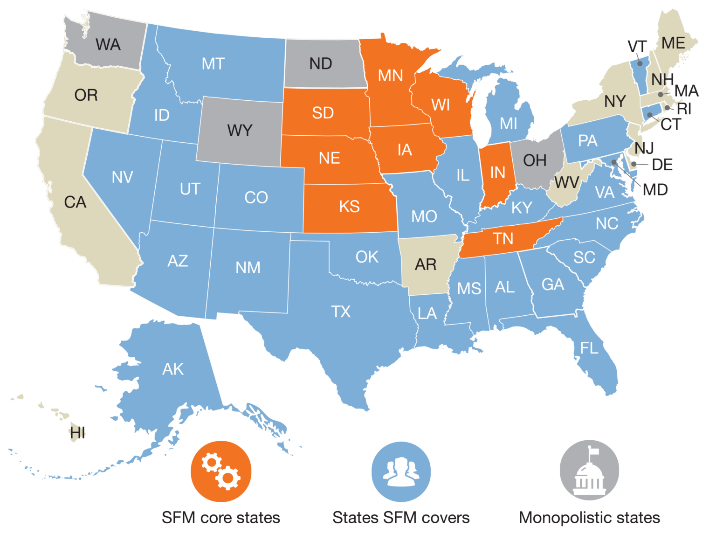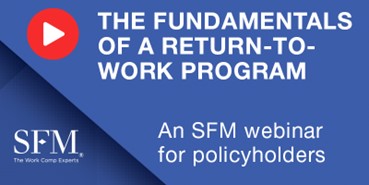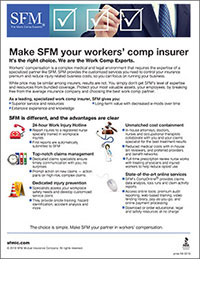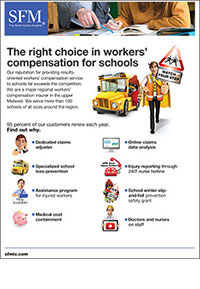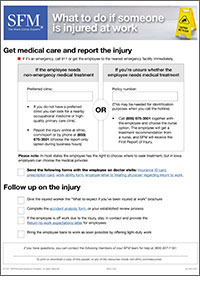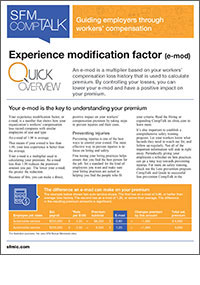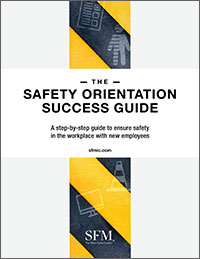By Aaron Schmidt, Managing Counsel at SFM’s in-house law firm
On May 30, 2023, Gov. Tim Walz signed the state’s recreational marijuana bill, making Minnesota the 23rd state in the U.S. to legalize recreational marijuana for adult use.
The new law contains several provisions that affect employers doing business in Minnesota, addressing changes to medical marijuana, use of off-duty lawful consumable products, drug testing in the workplace, as well as implementation of workplace policies. We recommend employers consult with an employment law or business law attorney, as the recreational marijuana law will significantly impact how employers address marijuana-related workplace issues.
Impact on workers’ compensation
From a workers’ compensation perspective, the new law does not substantively change the analysis for determining whether an injured employee’s intoxication allows for a defense to a claim.
Now that recreational marijuana is legal in Minnesota, it is effectively no different at the state level than any other legal intoxicating substance, such as alcohol, and therefore is subject to the Minnesota Workers’ Compensation Act’s intoxication defense statute. The statute states that if the injury was intentionally self-inflicted or the intoxication of the employee is the proximate cause of the injury, then the employer is not liable for compensation, however the burden of proof of these facts is upon the employer.
However, it’s important to note that because recreational marijuana remains illegal at the federal level, employers can still prohibit use, possession, and impairment from marijuana products if failing to do so would violate federal or state laws or regulations or cause the employer to lose federal funding or licensing-related benefits.
Effect on workplace policies
Despite the enactment of laws around the country permitting the recreational use of marijuana for adults, employers in the U.S. are not required to permit or accommodate marijuana use, possession, sale, transfer, or impairment while at work, on work property, or operating an employer’s vehicle, machinery, or equipment.
An employer may create written policies addressing such prohibitions, so long as the employer has enacted work rules regarding marijuana use and marijuana testing consistent with Minn. Stat. Section 181.951, Minnesota’s Drug and Alcohol Testing in the Workplace Act (DATWA).
This statute is specific to Minnesota, and drug testing laws will vary by state, so employers should refer to their local jurisdiction for the applicable laws. Employers with questions about the application of this new statute, and the appropriate immediate actions to address it, should consult an employment law or business law attorney in their jurisdiction.
Determining marijuana intoxication levels
While the new law addresses polices prohibiting marijuana use while at work, existing Minnesota law prohibits an employer from discriminating against an employee’s use of lawful consumable products while not at work, and the new law adds marijuana to the definition of “consumable products.”
The one difference from other intoxicating substances, however, may be how marijuana metabolizes and how that impacts testing results, potentially making it more difficult to measure intoxication and/or impairment compared to other legal substances.
According to Mayo Clinic Laboratories , “depending on the frequency of cannabis usage, its potency, or THC content, the detection limit of the laboratory assay and other factors, you can still get positive results or detect the carboxy-THC in the urine 30 days or longer once a person stops using marijuana.” This can make it difficult to tell when and where the marijuana use took place, complicating whether it can be discerned if the use was at work or not.
Work injury and marijuana use
If an employee is believed to have been intoxicated at the time of a work injury, there may be available defenses to pursue in denying the claim. In Minnesota, under Statute Section 176.021, Subdivision 1, an employer can raise an employee’s intoxication as a bar to a claim for workers’ compensation benefits if it can be shown that:
1) The employee was intoxicated at the time of his or her injury, and
2) That the intoxication was the proximate cause of the employee’s injuries.
The employer has the burden of proving these elements, and satisfying this burden starts with a proper understanding of the laws regarding substance use, testing, and defenses in the employer’s jurisdiction.
If an employer suspects that an employee is impaired at the time of the work injury, they should inform their workers’ compensation insurer immediately so a proper investigation can take place.
This is not intended to serve as legal advice for individual fact-specific legal cases or as a legal basis for your employment practices.

